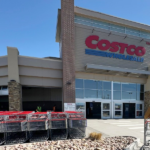These exits distort the dashboard. When people stop looking for work, unemployment improves on paper even as productive capacity erodes in reality. A shrinking labor force means fewer people building, caring, coding, teaching, and selling—and fewer paychecks supporting local businesses, bank deposits, and insurance premiums. The institutions most dependent on steady payrolls, consumer banks and insurers, quietly destabilize.
If the story of a shrinking workforce ending in lower demand, corporate consolidation, and antitrust crackdowns sounds grim, it doesn’t have to be the ending. There is another path forward. The antidote to an eroding middle class (and the surest route to sustainable corporate success) is investing in people. In other words, pursuing equity as a business strategy. Expand the labor pool. Bring sidelined groups back into well-paid, upwardly mobile jobs. Remove barriers, including inequitable pay, biased promotion systems, and outdated immigration and licensing rules.
Rebuild labor force participation and pay today, and you stabilize the core pillars of growth: demand (more customers with spending power), finance (deeper deposits and steadier credit performance), and insurance (broader, healthier risk pools). You also lower your regulatory temperature, because dynamic, expanding markets are less likely to trigger antitrust intervention. Equity, in this sense, is an antitrust-mitigation strategy. It grows the pie instead of re-slicing a shrinking one.
This is not an argument against AI. Used well, AI can augment human work and boost productivity per hour. But no algorithm can compensate for too few workers or too little pay. Build strategy on a shrinking labor base and a thinning middle class, and even the smartest models will optimize you into a smaller future.
Boards have a clear choice. Engineer earnings via consolidation and accept higher antitrust exposure while your addressable market narrows. Or expand your market by pulling women, foreign-born workers and especially foreign-born women back into good jobs, paying them equitable, and promoting them on merit. The first path buys time. The second builds resilience.
Antitrust doesn’t have to be your next big risk. Ignore the workforce that underwrites your business, and it will be. Rebuild the middle class and you rebuild sustainable growth. That isn’t a social agenda. That’s corporate strategy, at scale.
The opinions expressed in Fortune.com commentary pieces are solely the views of their authors and do not necessarily reflect the opinions and beliefs of Fortune.









